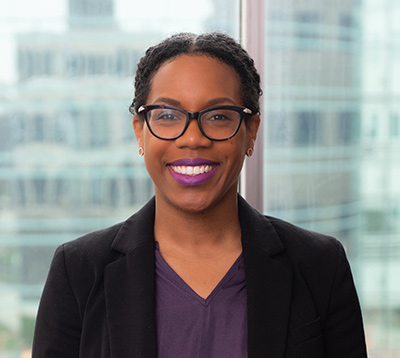Professor studies racial, gender equity issues in urban public schools
 Erica B. Edwards, Ph.D., didn’t always want to be a teacher. The decision to teach right out of college was based solely on her desire for employment. Her passion for education, not simply schooling, developed in Philadelphia where she taught middle school, an opportunity made possible through Teach for America.
Erica B. Edwards, Ph.D., didn’t always want to be a teacher. The decision to teach right out of college was based solely on her desire for employment. Her passion for education, not simply schooling, developed in Philadelphia where she taught middle school, an opportunity made possible through Teach for America.
“Knowing how many parents—Black mothers in particular—have [struggled] to secure better educational opportunities for their children,” Edwards wanted to be a part of the good fight. “I started to see it as a civil rights issue that I wanted to engage more deeply.”
So, she went back to college and earned a master’s in education at the University of Pennsylvania. Later, she worked as the director of after school programs for the nonprofit Sasha Bruce Youthwork in Washington, D.C., where she supported homeless and runaway youth by helping them stay in school. She also partnered with high schools to lead programs geared toward marginalized communities to aid with “asset mapping, and youth participatory action research,” she said.
Edwards loved the work she did but knew such work was only necessary because of broader systemic issues. Inspired to be a part of the change, Edwards decided to get her Ph.D. in educational policy studies from Georgia State University so that she might learn “how to change policies in the direction of greater intersectional justice,” she said.
Educating tomorrow’s leaders
In 2018, she arrived at Wayne State University as an assistant professor in educational leadership in policy studies where she conducts research on Black feminist methodologies, cultural studies, and school discipline.
Her work is principally concerned with racial and gender equity issues in urban public schools.
For the past year, Edwards has worked with a group of doctoral students who were motivated to conduct independent studies after taking her course on race, leadership, and the school/prison nexus.
Inspired by their hard work “to see their work in print,” Edwards helped them design their studies, which span Black teachers’ perceptions of Black students, school leaders’ perceptions of students with disabilities, tribalism as systemic oppression in Uganda, and white parents’ decision-making as it relates to school choice in Canada.
Edwards and a number of these students presented at the 2020 American Educational Research Association Annual Meeting.
“I hope that, ultimately, my students’ research will be used as a launching pad to soar into research for racial justice in more complex and sophisticated ways.”
As for her own research, Edwards hopes it can be used “to support Black girls with healing the many ways that schools dishonor and disregard their being.” That means abolishing punitive discipline, schools taking accountability for the ways in which student behavior is mutually constituted, and taking a critical look at the assumptions made about the importance of school in students’ lives, she said.
“For many, especially for Black girls, school cannot be the most important thing in their life. The sooner we can accept and accommodate that social reality, the better able we are to serve them in culturally relevant ways.”
To learn more about Edwards and her research, you can visit her website and follow her on Twitter @EricaBEdwards.